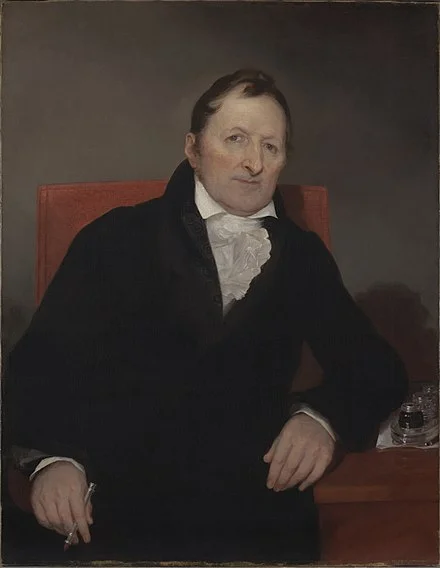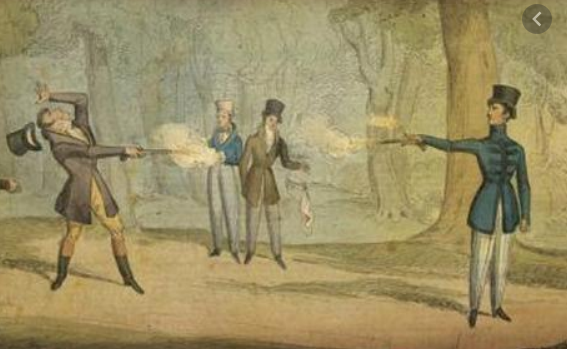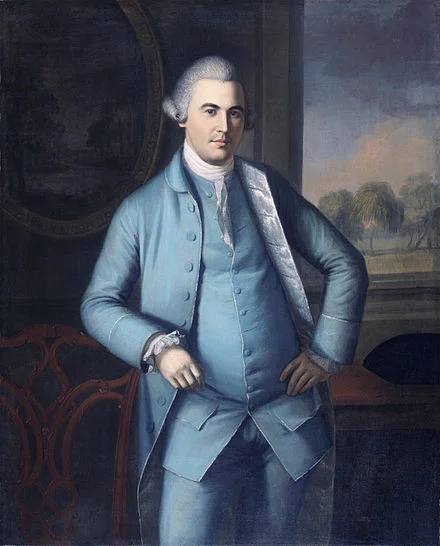Eli Whitney invented the cotton gin, which helped push the United States into the Industrial Revolution.
George Washington And The Rules Of Civility
George Washington’s Rules of Civility, are a list of behaviors the future President wrote out as a young man that seemed to have effected his character throughout his life.
Edward Hand Guards The Western Frontier
Edward Hand was an American Revolutionary who commanded Fort Pitt.
George Eacker - Two Duels In Two Days
George Eacker was a wealthy young New York attorney best known for shooting Philip Hamilton in a duel.
Pierpont Edwards Organizes The Toleration Party
Pierpont Edwards was a Federal Judge who created the Toleration Party which brought freedom of religion to Connecticut.
Richard Dobbs Spaight Overcomes Defeat
Richard Dobbs Spaight was a signer of the Constitution and a Governor of North Carolina.
Samuel Ward Sets Petty Issues Aside
Samuel Ward was a longtime leader of Rhode Island politics when the American Revolutionary War broke out.
Gabriel And His Rebellion
Gabriel was an extraordinarily intelligent slave who organized a rebellion outside Richmond, Virginia.
Thomas Pinckney Tickets John Adams
Thomas Pinckney was an extremely important Founder who spent time as a prisoner of war in the Revolution, became Governor of South Carolina and served as Minister to Great Britain.
Edmund Randolph Disappoints Washington
Despite refusing to sign the Constitution, Edmund Randolph was chosen by President Washington to be the first Attorney General of the United States.
Thomas Tredwell Sends The Music Home
Thomas Tredwell spent over forty years serving the people of New York at the State level during the Founding Period.
Philip Freneau - The Father of American Poetry
Philip Freneau was one of the premier authors of the American Founding Period.
An Incredibly Brief Overview Of The Ratification Of The Constitution
The Ratification of the Conventions of nine States, shall be sufficient for the Establishment of this Constitution between the States so ratifying the Same.
Theodorick Bland Leads Prisoners Across The Colonies
Theodorick Bland was tasked with moving the ‘Convention Army’ of captured British soldiers from Boston to Charlottesville.
Deborah Sampson Drags Herself To War
Deborah Sampson was a poor woman who dressed as a man to join the Continental Army.
John Paterson Finds A Woman Under His Command
John Paterson was a Major General in the Continental Army.
Patience Wright Waxes The King
Patience Wright was a colonial sculptor who provided intelligence for the American Revolutionaries with her art.
Thomas Willing Chairs Two National Banks
Thomas Willing was the President of the Bank of North America and the First Bank of the United States.
Abraham Clark Suggests A Constitutional Convention
Abraham Clark was a signer of the Declaration of Independence.
Lambert Cadwalader Is Forced To Resign
Lambert Cadwalader fought in the Continental Army, was a member of the Continental Congress, and represented New Jersey in the first session of the House of Representatives.



















